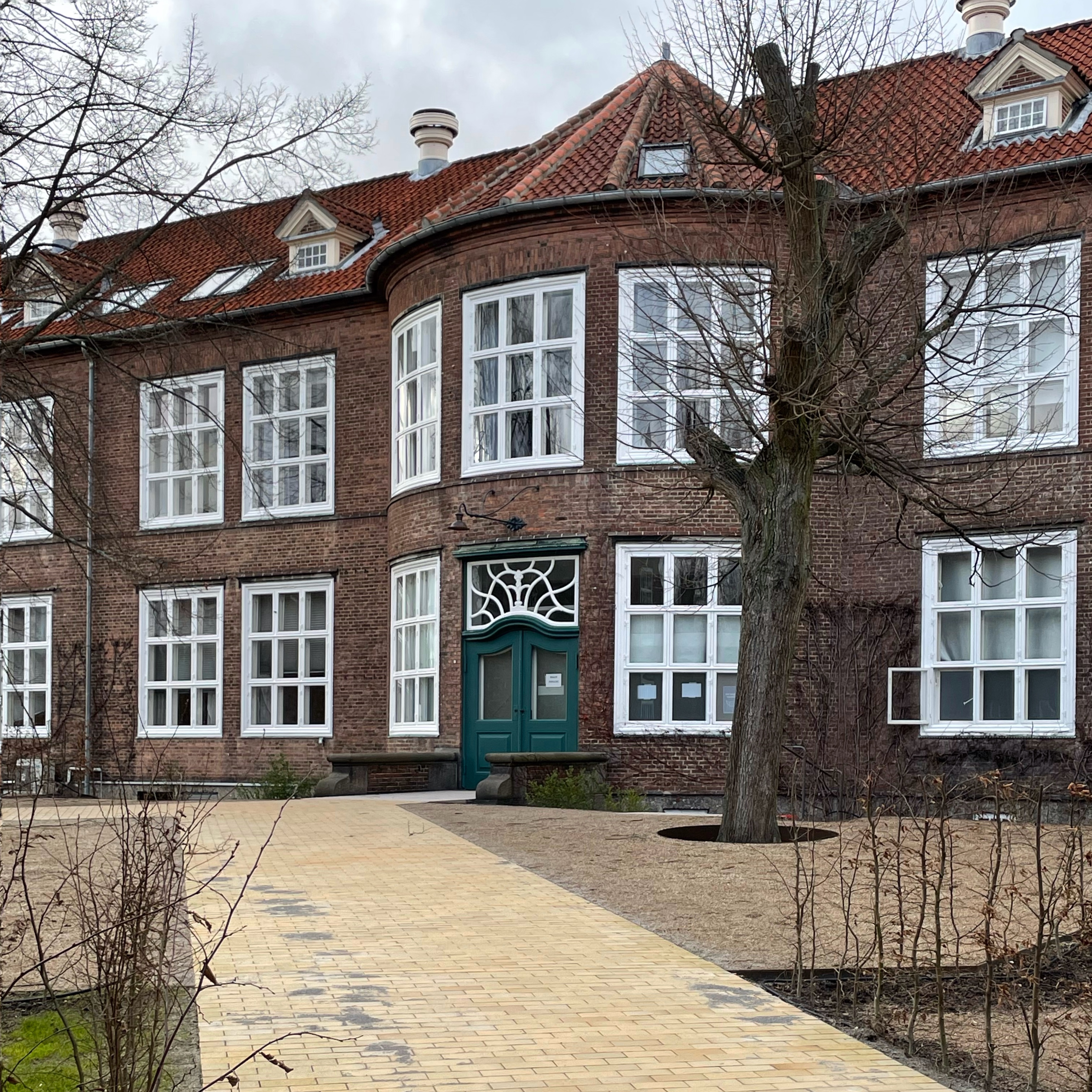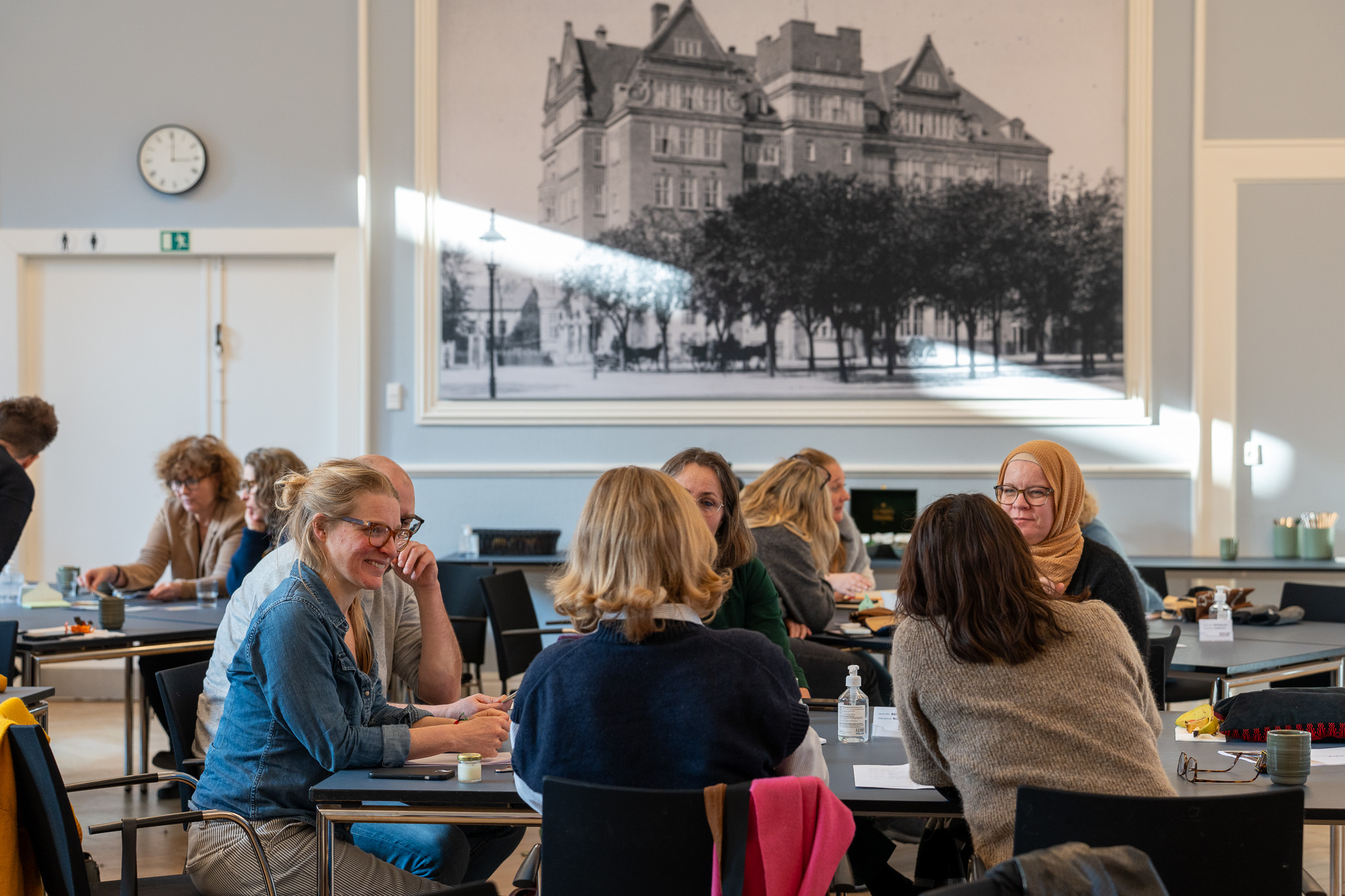
Obital's golden egg shows why inclusive innovation should take root in Danish industry

Discussion paper by Marianne Thellersen, Group Director of Innovation and Entrepreneurship, DTU and Marianne Kofoed, Director, Bevica Fonden
The joy of not having to touch a finger is familiar to most. The need to be able to cope completely without one's fingers is familiar to people with movement disabilities.
Both audiences can feel greeted by the company Obital, who have developed the app Eyetell, which allows the eye to navigate and communicate on a screen entirely without using the fingers. By focusing their gaze on the screen, a person with muscle wasting, for example, can type a sentence and have it read aloud.
Similarly, a traveler can check in at the airport without risking coronavirus contagion. The app is aimed at people with mobility impairments -- and for everyone else. It is the first of its kind to pay. It is freely available, and so it is a school example of how to develop technology that can be used by all, based on the needs of one minority.
The principle is called universal design and was first formulated in the 1980s by architect and wheelchair user Ronald Mace. The aim was to avoid stigma by designing solutions that encompass as many differences as possible. The status today, however, is that we still surround ourselves with solutions that divide us into “ideal people” and “disabled people”.
“The future has diversity on the agenda. However, sustainable development in the field of disability is slow.”
If, for example, a wheelchair user is going on the train, the person must first ask for help in setting up a driving ramp; then live with the unwanted attention when the train departure is postponed. If someone who is difficult to walk to see a doctor, four out of ten Danish health clinics do not have disability access at all.
It is time for a change in the way society is structured. On 3 December it is International Day for the Disabled — we take this opportunity to draw attention to the potential of inclusive solutions.
A good business
It's not that the focus on diversity is lacking. Dansk Erhverv has a diversity policy that addresses the need for increased inclusion in entrepreneurial contexts. At the same time, the UN has 17 global goals with the inherent basic principle Leave No One Behind actualized the universal principle of creating equal rights for all regardless of gender, race, religion, sexuality and disability.
The future has diversity on the agenda. However, sustainable development in the field of disability is slow. According to the Institute for Human Rights, over the past ten years, the rights of people with disabilities in ten key areas -- including equality, mobility and accessibility -- have regressed or remained unchanged.
Should this inequality be reflected in the way we think about innovation, it does not just mean the failure of an entire population group. It also means missing out on a good business.
According to Vive — The National Research and Analysis Centre for Welfare, 31 per cent of them live with a disability at home. In addition, an analysis from KL shows that the proportion of elderly people over 80 years old will increase by 161,000 people between now and 2030, which, all other things being equal, will cause the former group to grow.
If you manage to include these people in your business, you open up a diversity of market segments that are often overlooked in mainstream business thinking. For the company Obital, in 2021, this meant a favorable sale of the business to GN Groups, a world leader in intelligent communication solutions.
Companies with
For more companies to fulfil their potential, it requires a showdown with the notion of the “ideal man”. At DTU and the Bevica Foundation, we believe that knowledge sharing and strong collaborations across education, organisations and companies are the way forward.
Since 2019, in cooperation with the Association of Young People with Disabilities and Danish Disability Organizations, we have been working to make inclusion a natural part of the development of new technologies.
The Technology Leaving No One Behind collaboration has resulted in approximately 2500 engineering students now being taught universal design tools annually. In the meantime, 56 startups have participated in inclusion workshops. Finally, for two years in a row, DTU has co-hosted a bootcamp for young entrepreneurs with disabilities, where students and entrepreneurs develop new solutions to problems that entrepreneurs encounter in their daily lives. Several have now started their own businesses.
So we are well underway to implement an inclusive human vision in innovation — but only in the small. The goal is to create change throughout the industrial value chain, and for this to succeed, more companies are needed to join. Companies that have the courage to work together, where innovation, value creation and inclusion are key words. Companies that have the heart and brain in the right place.
Together, we can ensure that sustainable development proliferates and ultimately has a positive impact on how we build a more diverse future.
The discussion paper is published in Børsen 30 November 2022
Latest News
Follow the latest news from the Bevica Foundation below.



